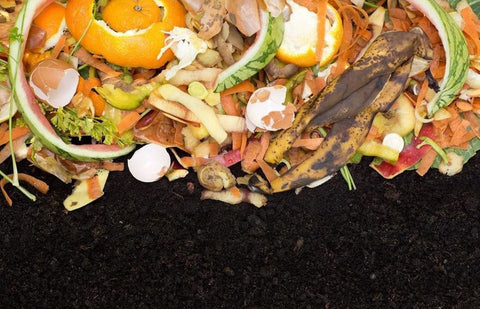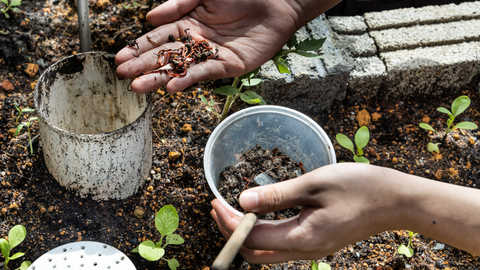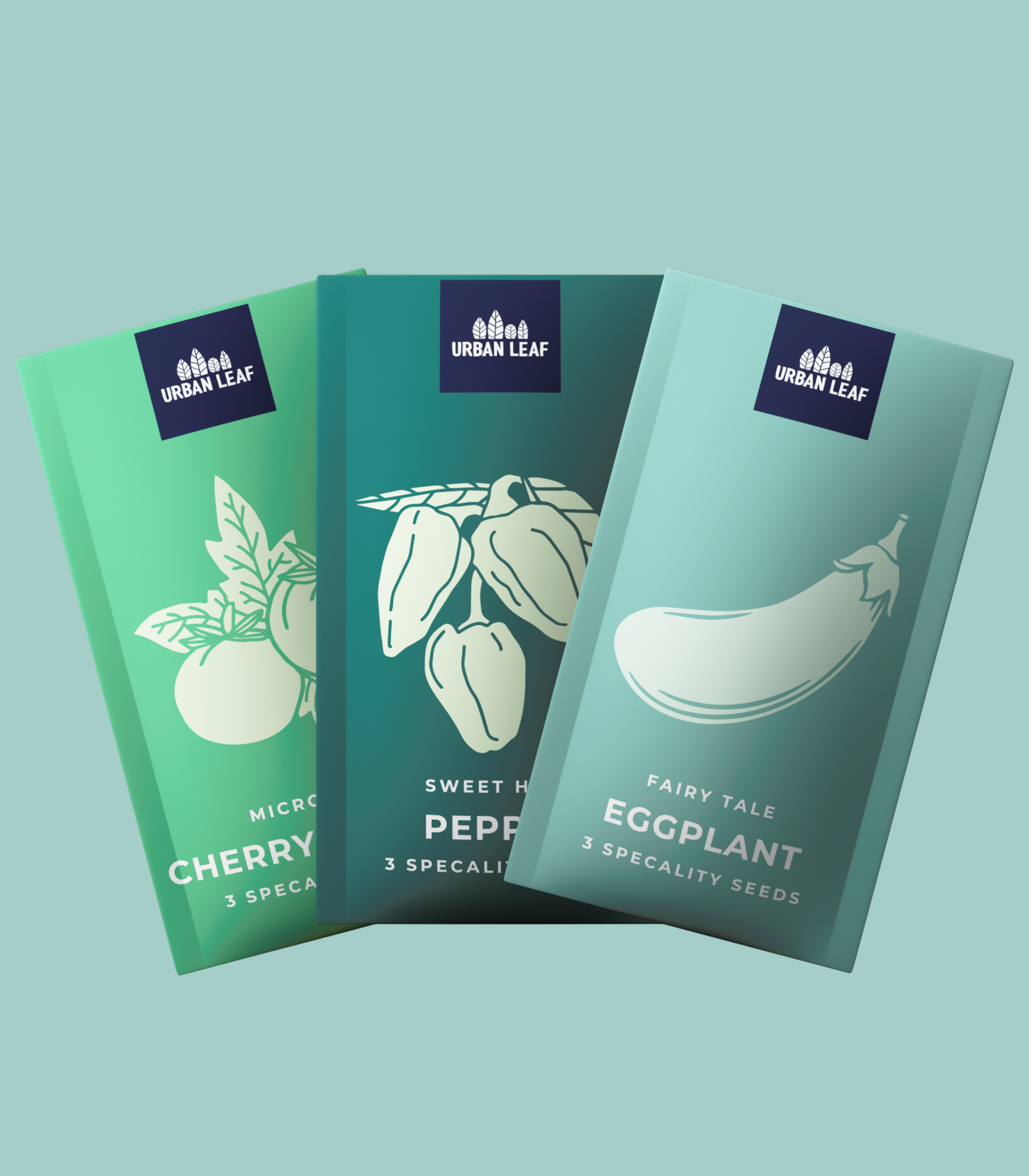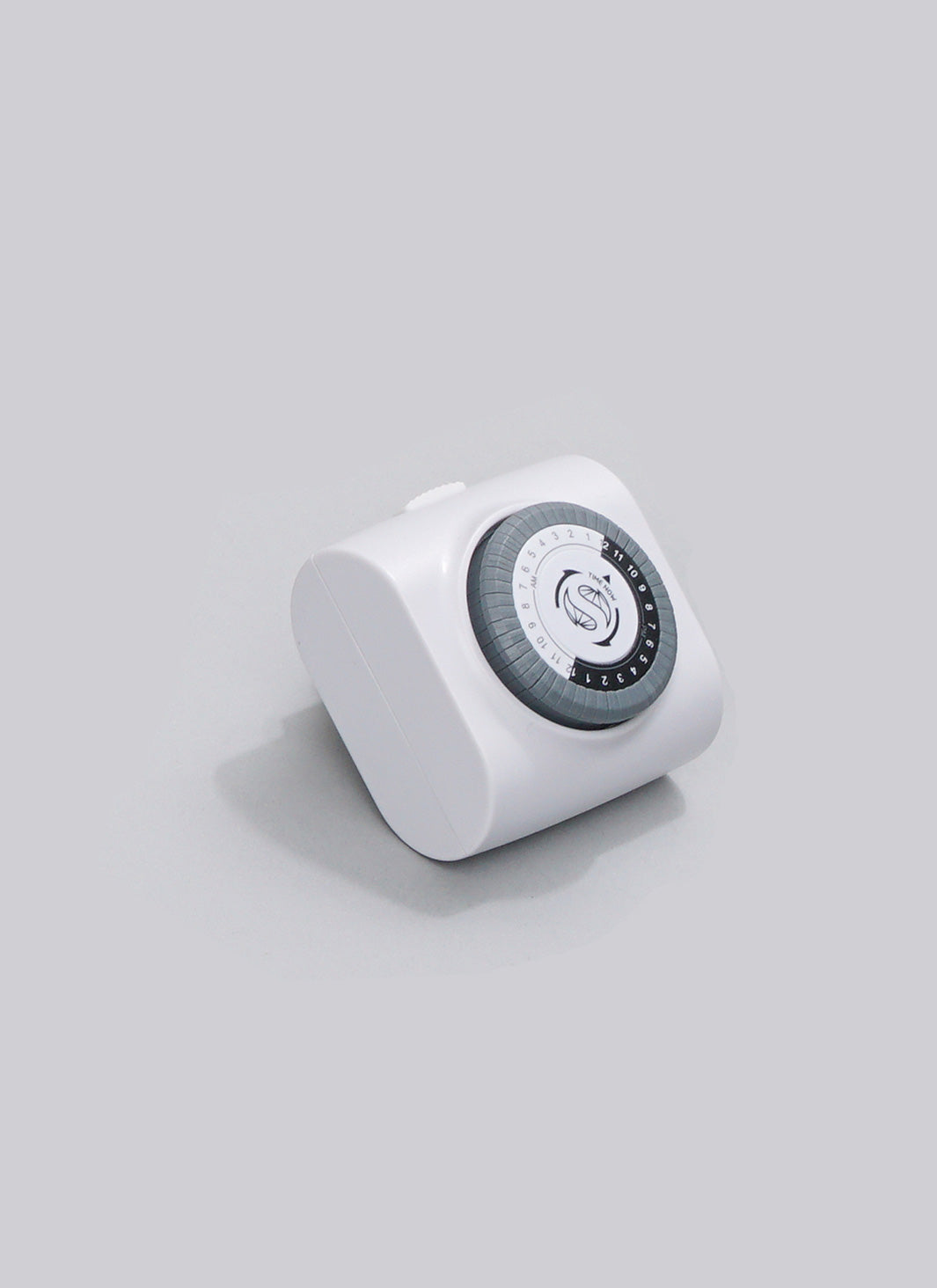Learn when to fertilize your plants, and the best kinds of fertilizer to use
Happy plants need healthy soil. Although Urban Leaf offers high-quality seeds to get you started, the long-term health of your garden is going to depend on how well you look after it – and a big part of getting that right is making sure it’s well fed.
We recently caught up with Tim Flood, the horticulturist at Nature Hills Nursery regarding the extra steps you can take to ensure your plants and herbs don’t just survive, but thrive!
How Important are Fertilizers for the Health of Your Plants?
Tim notes that healthy, vigorous plants ward off disease and insect pressure much more effectively than plants that are weak and less vigorous. Fertilizer can certainly play a part in that, though it does not always mean there is a fertility issue. Sometimes the plant is not getting the right amount of sunlight or shade, which may be causing it to suffer. Soil pH is also very important – because plants can only absorb the nutrients from the soil if this is within their ideal range.
What type of fertilizer should you use and when?
It is always a good idea to ask the nursery what specifically that plant will prefer. It is more important to match the soil type, sun or shade, and moisture needed to be successful with that plant than what kind of fertilizer may be needed. For example, tomato plants, strawberry plants, and pepper plants need a ton of sunlight and water to thrive, so definitely tend to those conditions before reaching for a hefty fertilizer. Houseplants generally do not grow as much during the short days of winter (because of the lack of sunshine), so that is not a good time to fertilize those plants. A better time to add some fertilizer to houseplants is when the days begin to get longer, the spring sun gets higher in the sky, and your plant starts sporting new growth.
For fruiting plants, their nutrient requirements tend to increase as they grow fruit – so this is also a good time to revisit your feeding regime.

What Do the Numbers on the Fertilizer Mean?
Fertilizers are more of a science experiment in ratios than anything. Most garden fertilizers contain 3 major nutrients:
- Nitrogen (N)
- Phosphorus (P)
- Potassium (K)
- (plus small amounts of calcium, magnesium, iron, sulfur, and boron)
These nutrients need to be dissolved in water to be absorbed through the roots.
- Nitrogen is needed to fuel new growth.
- Phosphorus is essential for root growth.
- Potassium helps move nutrients and water in the plant.
So a 10-10-10 means there is 10% of each nutrient in that bag of fertilizer. For example, a 50-lb bag of 10-10-10 contains a total of 15 lbs of nutrients: 5 lbs nitrogen, 5 lbs phosphate, and 5 lbs potash (potassium). The remaining weight is filler, usually sand or granular limestone. To understand what plants need which nutrients, it is important to know what your soil already contains with a soil test. The soil test will show exact amounts of each nutrient, so you can correct the fertility based on the reading.
Organic Vs. Non-Organic Fertilizers?
Organic has certainly been a buzzword over the last several years. But is organic plant fertilizer really necessary? Tim mentioned that since the 1930s, chemical fertilizers were developed to pump up plants with the necessary nutrients as effectively as possible. However, "Yearly and general overuse of these chemical fertilizers have had some adverse effects on groundwater and runoff and has also caused some environmental concerns." Organic fertilizers are developed from organic sources like plants and animal manures. These can be a bit less precise and less economical on large-scale use but are better for the environment as a whole. They are very readily available and are good to use for your home gardens and food crops.

What Should You Look For in a Commercial Potting Mix?
In our blog collaboration with Good Dirt, we discussed the importance of well-drained soil mix with containers that have drainage holes to allow for excess water to drain out as needed. This is extremely important, especially when fertilizer is involved, as you want a slow-release fertilizer so that the nutrients are available to the plants growing in it over a long period of time. Tim mentions that you should check the label grade on the fertilizer you buy to see how long the fertilizer will benefit the plants growing in it. You will probably want to top up the fertilizer after about a month or so, though this will depend on your plant and the climate. Tim recommends either topdressing with more granular fertilizer, which can last longer, or supplementing with a liquid fertilizer.
Fertilizers for Crops
Edible plants are where you may want to use organic fertilizer since you will most likely be consuming these veggies and herbs! Tomato plants, for example, need more nutrients than other plants, and the fertilizer really depends on your soil. If the soil is high in nitrogen or properly balanced, you need a fertilizer that is high in phosphorus and low in nitrogen. Consider using a 5-10-5 ratio or a 5-10-10 mixed fertilizer in this case.
If you’re looking for an eco-friendly fertilizer option, you might also consider worm castings. Worm castings are produced from food waste that has been broken down by worms (usually red wrigglers). Not only are you feeding your plants with this, but you’re also helping to divert food waste from landfill – which is GREAT for the environment. You can purchase worm castings online, make your own with a vermicomposter, or some farmer’s markets also offer it.
We hope you've found this useful; if so, please consider joining our email list below!






